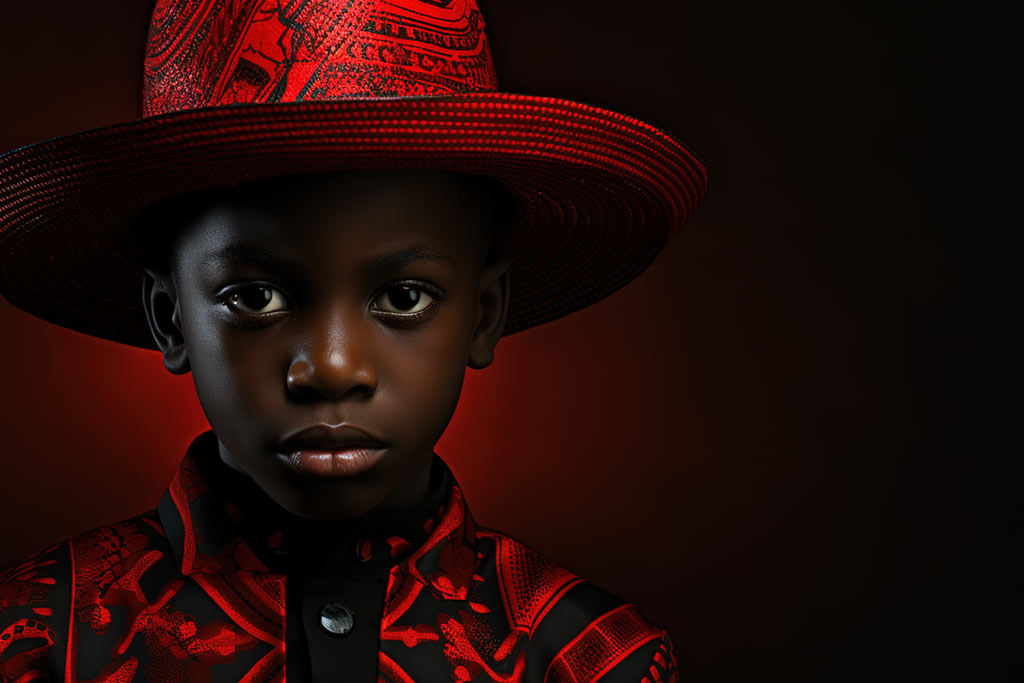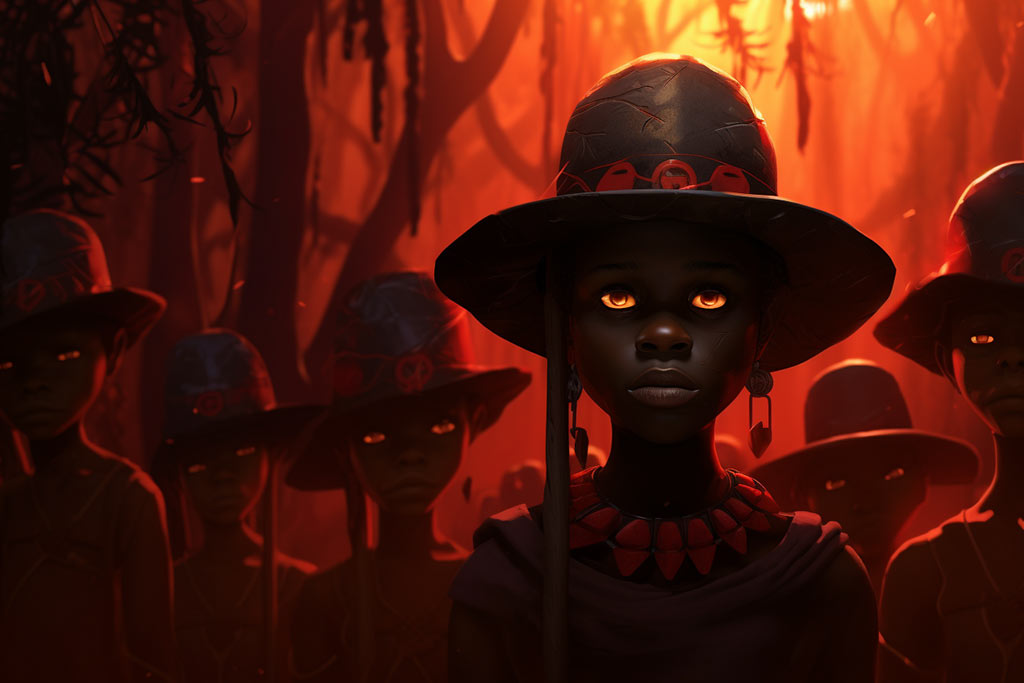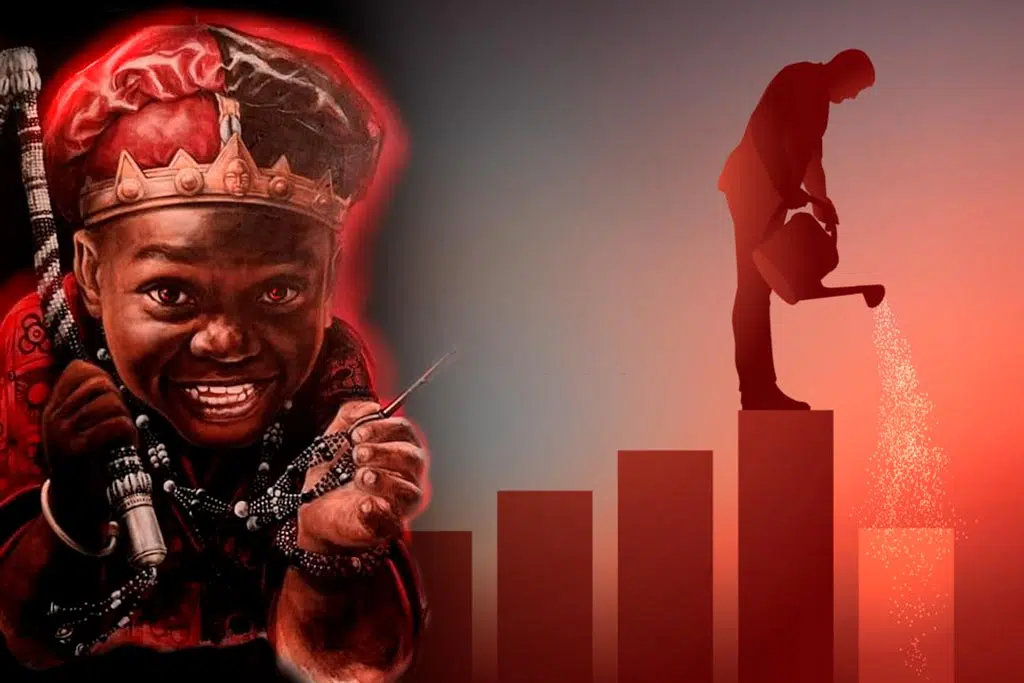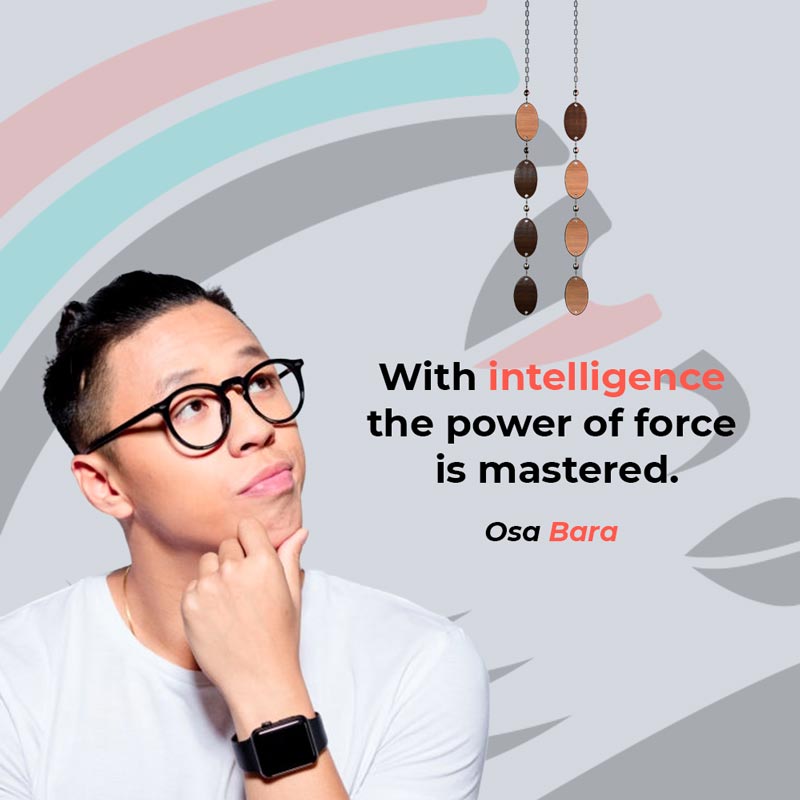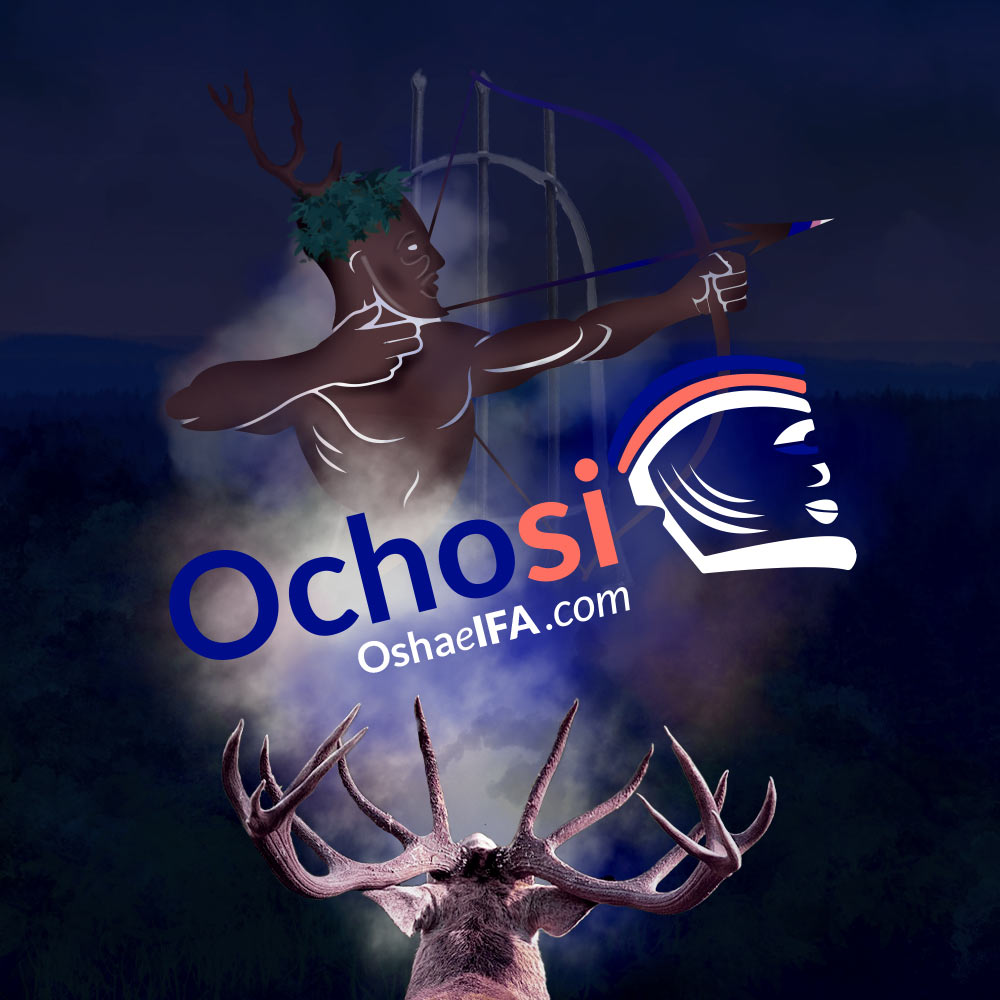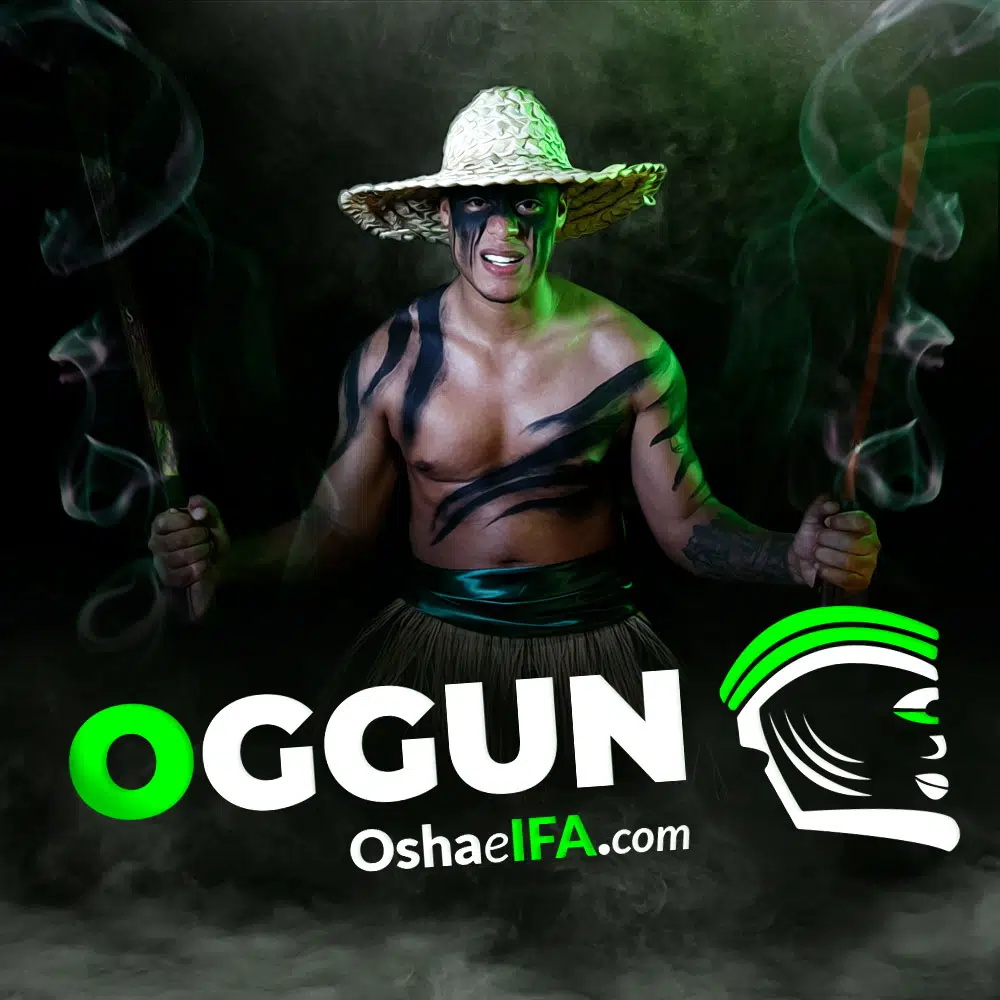Elegua: The Guardian of the Paths in Santería

Elegua is revered in Santería as the Orisha messenger and custodian of the paths, playing an essential role as a mediator between humans and deities. He embodies the balance between opposing forces and receives the initial honor in all rituals.
Introduction: Who is Elegua?
Known by multiple names such as Eshu, Elegguá, and Elegbara, among others, Elegua is presented as a deity of complex nature in cultures of Cuba, Brazil, and Nigeria. This ambivalent Orisha can act as both humanity's protector and its harshest judge.
Within the rich Yoruba tradition and its derivations, the Orishas serve as intermediaries between mortals and the supreme divinity, composed of Oloddumare, Olofin and Olorum. These divine beings are believed to intervene in human affairs, endowed with specific attributes to assist in various situations.
Elegua balances light and shadow, dynamism with youth. His role as messenger and translator between the Orishas and humanity is vital for spiritual communication, helping to strengthen the ties between heaven and earth and keeping Olodumare informed about the actions and offerings of mortals and the Orishas.
Endowed with an incessant disposition towards action and a remarkable ability to adapt to human changes, Eleggua is seen as a spiritual figure who assumes various social roles. Indispensable when starting any undertaking, he is the master of changes and of life itself, ensuring his participation in each vital event.
Characteristics, Symbols and Essential Attributes of Elegua
Elegua, a major Orisha in Santería, manifests in places of transition such as corners, crossroads, and thresholds. This perpetual traveler is the guardian of destinies and mediator between misfortune and fortune, starting the group of warriors with Ogún and Ochosi. Elegua takes various forms, from a mischievous child to a wise old man, reflecting his versatile and balanced nature. His dual character makes him protector and judge, master of all paths and knower of the mysteries between the physical and spiritual worlds.
Elegua's Necklace and Its Colors
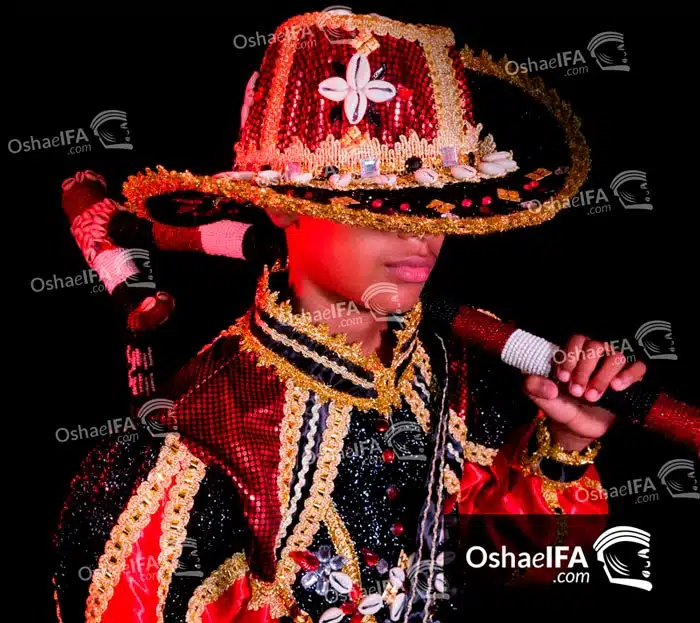
Elegua's necklace, composed of red, black and white beads, symbolizes her mastery over life, death and spiritual balance. Each color has its meaning: red represents vitality and dominance; black, darkness and mystery; and white, light and purity. The combination of these colors reflects the complexity of Elegua as an entity that encompasses all aspects of existence.
Celestial Origin: The Odu Isalaye of Elegua
Elegua descended to the earthly world through the Odu Ogbe Irete, marking his universal presence and his role as distributor of paths and destinies among human beings.
Divine Numerology: The Elegua Number
The number 3 and its multiples, especially 21, are sacred to Elegua, symbolizing the complete cycle of existence and its influence on all aspects of life and spirit.
Holy Days and Celebrations
Mondays are dedicated to Elegua, marking the beginning of the week as times to honor him and ask for his guidance. Its main holiday is June 13, in syncretism with San Antonio de Padua, reflecting the integration of traditions and the universality of its cult.
The Image of Elegua: Sacred Symbols and Artifacts
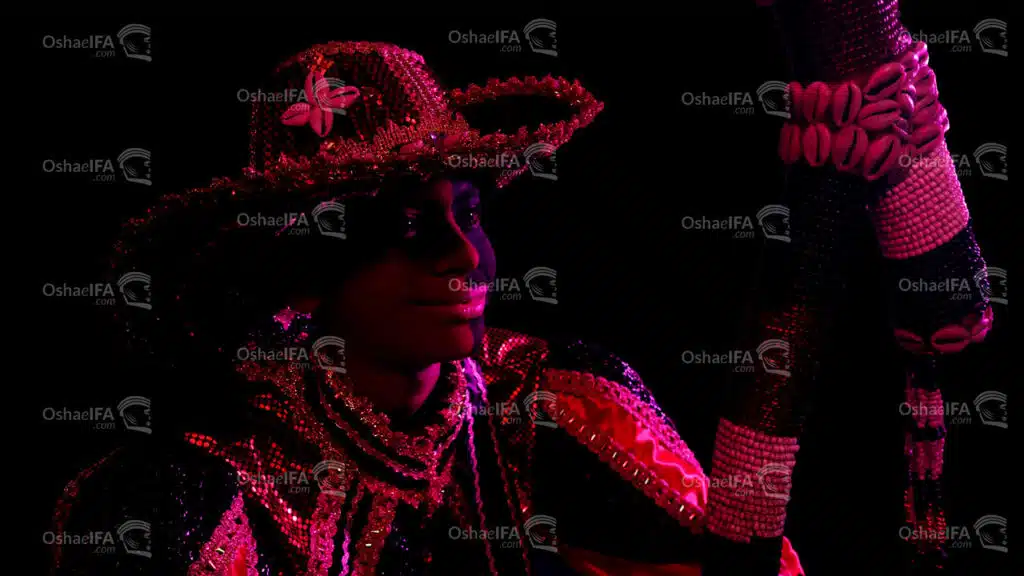
The iconic representation of Elegua captures his essence as an Orisha of paths, communication and destiny. Through her distinctive clothing and the artifacts she carries, layers of meaning and function are revealed within the practice of Santería. Elegua is typically shown in an outfit that includes a tight-fitting vest and knee-length pants, adorned in vibrant colors of red and black, symbols of her duality and power. Her clothing is complemented by a straw hat, an emblem of her connection to the town and her role as protector and guide.
Among the sacred artifacts that accompany Elegua are:
- Brandy Bottle: Symbol of purification and offering, used in rituals to invoke its presence and promote communication.
- Guano or Straw Hat: Represents Elegua's humility and earthly connection, as well as his role as the eternal traveler between worlds.
- Decorated Maraca: Instrument of call and celebration, painted with the characteristic colors of Elegua, to attract its energy during rituals.
- Doodle or Staff of Power: Made of guava, it symbolizes Elegua's authority and ability to direct and protect the paths of his devotees.
- Coins: They attract prosperity and ensure economic protection, reflecting Elegua's benevolence towards those who honor him.
- Mouse trap: Metaphorically he frees his followers from the traps and dangers they may encounter on their path.
- Child Toys: Offerings that allude to the mischievous and playful nature of Elegua, reminding us of his taste for joy and innocence.
- Door Keys: They symbolize Elegua's ability to open and close paths, offering new opportunities and protection against obstacles.
- Clay plate: Where your foundation is mounted, it serves as an earthly base for your spiritual energy and as a focal point in worship.
Each element that surrounds Elegua is not just an ornament; It is a symbol loaded with meaning, an instrument of spiritual connection and a tool that facilitates interaction with this powerful Orisha. Through these symbols and artifacts, devotees can more deeply understand the nature of Elegua, getting closer to its energy and favoring its guidance and protection in their lives.
Learn about the unique features and challenges faced by Children of Eleggua, directly related to the influence of this powerful Orisha.
The Cult of Elegua: Deepening and Practices
The cult of Elegua occupies a place of honor and deep significance within Santería. This veneration transcends the simple act of worship, immersing devotees in a world where every ritual and practice is a doorway to a deeper connection with the divine. Elegua, as the Orisha of paths and crossroads, becomes the essential guide for those who seek not only protection but also clarity and direction in their lives. Through rituals dedicated to Elegua, Santería practitioners embark on a spiritual journey that deepens their relationship with the invisible world and the forces that shape destiny.
The Ota of Elegua: Sacred Stone of Connection

The Ota de Elegua represents more than a simple stone; It is a vital sacred element in the practice of Santeria, specifically within the rule of Osha. This consecrated object acts as a direct channel to the essence of Elegua, allowing believers to not only honor and venerate this powerful Orisha but also request his guidance and assistance in overcoming obstacles and challenges in their lives. Carefully selected from nature, each ota is unique and should resonate with the energy of the individual who receives it, thus ensuring a deep and personal harmony with Elegua. The consecration of the ota is a meticulous spiritual process that validates its ability to serve as a sacred link between mortals and the divine, marking the beginning of a relationship of mutual respect and devotion.
Ota Reception
The reception of the Ota de Elegua is a defining moment in the spiritual life of an initiate, a rite of passage that seals their commitment to the path of Santería. Through this ritual, led by a spiritual godfather or godmother, the devotee receives not only a sacred object but also a mission: to maintain a devotional practice that honors and reflects the principles and teachings of Elegua. This ceremony is a turning point, a before and after in the believer's relationship with the spiritual world.
The Consecration at Kariosha
Upon being consecrated in Kariosha, the initiates receive the Ota of Elegua, which is blessed again and accompanied by a hand of snails. This ritual intensifies the connection with Elegua, revealing divine guidance and strengthening the spiritual protection of the initiate.
The Importance of Receiving Elegua
Receiving the Ota de Elegua marks the beginning of the spiritual journey within Santería, opening ceremonial paths and favoring balance and personal development. This first step in initiation is crucial to harmonize the energy of the devotee with that of Elegua, promoting a positive flow in his life and environment.
Explore the various Paths of Elegua, each revealing unique facets of this essential Orisha. Learn how the different manifestations of Elegua influence the lives and practices of its devotees, deepening your understanding of its vital role in Santería.
The Presence of Elegua in Everyday Life

Elegua occupies a privileged place in the daily lives of its devotees, serving as a bridge between the divine and the earthly. Its presence is felt in every corner, from the paths we travel to the homes we inhabit, exerting its influence to maintain balance and harmony. Elegua is asked to intervene in a variety of situations that reflect his broad spectrum of powers and responsibilities. From protection against adversity to facilitation of personal and spiritual growth, his role is fundamental in religious practice and in the daily lives of those who worship him. Below, we explore the specific requests and devotions that followers present to Elegua, highlighting his role as guardian, protector, and facilitator of the desires and needs of his devotees.
What is asked of Elegua? Requests and Devotions
Fundamentally, we can understand that Elegua is an Orisha whose purpose is to harmonize the life of human beings, and cause a balance through which they can live in peace. Therefore, your intervention is usually asked for the following matters:
- First, Elegua cares for herself and entertains herself to be in tune with the Orisha and enjoy her blessing and sympathy, in such a way that she does not interfere negatively in our affairs.
- To avoid conflictive situations such as: fights, confrontations, accidents, public and personal calamities.
- To open the paths of all existence and have a positive development.
- To carry the messages and the ebboses to Oloddumare and the rest of the Orishas, due to his work as an intermediary between men and divinities.
- To protect the temples, the house and the cities.
- So that it safeguards the dynamic balance between the spiritual and material planes.
- To have economic evolution and financial stability.
- To get rid of traps and enemies.
- To achieve good negotiations, convince or dominate.
- He is a protector of children by nature, therefore, he is entrusted with their care.
- For being the owner of the games of chance you are asked to have luck in your practices.
- Basically, Elegua can be invoked to solve a myriad of circumstances, because he has knowledge of everything that happens both on the earthly plane and on the spiritual plane.
How to care for Elegua? Favorite Offerings of This Orisha
To properly attend to Elegua and honor her presence in our lives, a series of offerings and rituals are recommended that resonate with her energy and tastes. Attention to Elegua begins with respect and care for its otá, a sacred stone that represents its essence. Anointing this stone with palm oil or corojo butter and honey is a common practice to keep its energy vibrant. In addition, toasted corn, jutía powder and smoked fish, along with brandy and tobacco, are essential elements in the offering to Elegua, symbolizing respect and devotion.
The diversity of adimuses (offerings) that can be offered to Elegua highlights its accessible and generous character. From guava and coconut sweets to fruits and candies, each offering carries with it a message of gratitude and a request for protection. Sautéed whole fish, popcorn and corn buns are especially appreciated by Elegua, reflecting his taste for rich and varied flavors.
The offerings are not limited to just food; Coins, bills, and special drinks such as shekete, a mixture of brandy with honey and roasted corn, are also well received. This demonstrates the relationship of reciprocity between the devotees and Elegua, where giving and receiving is understood as a continuous cycle of gratitude and blessings.
On special occasions, sacrifices of animals such as goats, chickens, and others are made, always under the guidance of specific ritual practices and with the greatest respect for life. These acts of devotion reflect the depth of spiritual commitment to Elegua, seeking his guidance and protection in all aspects of life.
Caring for Elegua is an act of faith and love, a recognition of his power and his role as protector and guide. Each offering, each gesture of care towards your otá, strengthens the connection with this powerful Orisha, ensuring his favor and protection on the path of life.
He does not like?
In the relationship with Elegua, it is as important to know and comply with his preferences as it is to avoid what he dislikes. There are certain taboos and restrictions that, when ignored, can block positive energy and attract negative consequences for both practitioners and their environment. Below are some of the actions and elements that Elegua prefers not to find in its devotees and their offerings:
- Elegua prefers to refrain from consuming pigeons and guineas, as they weaken his energy. If they are offered, it must be done within a specific ceremonial.
- Maintaining debts with Elegua can cause discontent. It is crucial to fulfill all commitments made with him to avoid conflicts.
- Whistling or whistling in their presence or near their sacred space is considered disrespectful and may cause them discomfort.
- Curses in your presence or within the home where your altar resides are strongly discouraged.
- You should avoid manipulating your otá or foundation after having had sexual relations, until a full day has passed.
- Women must refrain from touching any otá or image of Elegua or other Orisha during their menstruation.
- Personal cleanliness is essential before interacting with your otá; Therefore, it should not be handled without a previous bath.
- Foods or drinks with hot peppers alter your natural fire and are not to your liking.
- Elegua prefers to avoid direct exposure to candles, excessive heat, and hot foods, as these can be detrimental to his energy.
Understanding and respecting these preferences is essential to maintain a harmonious relationship with Elegua, guaranteeing its protection and guidance on our path. Each of these taboos underlines the importance of respect, purification and moderation in our devotional practices towards this powerful Orisha.
How do you greet Elegua?
Greeting Elegua is an essential part of the daily practice of his followers, marking the beginning of each day and each return home with a gesture of recognition and request for his protection. This greeting is performed through a simple but significant ritual: placing one hand on the ground and with the other hand in a fist, the floor is gently tapped three times before its otá or representation. This act is a request for Elegua to accompany us, bless us with health and tranquility, and guide positive energies towards us, while warding off adversities and dangers.
In this gesture of greeting, Elegua is invoked to open our paths to luck, economic well-being, and good fortune, ensuring that negative forces elude us. Importantly, Elegua accepts being greeted in various postures, whether standing, sitting, or even crouching, which underlines his accessibility and the inclusive nature of his worship.
This daily ritual not only demonstrates respect and devotion to Elegua, but also reinforces the spiritual bond between the orisha and the devotee, keeping sacred communication alive and ensuring their constant protection and guidance.
You Might Also: All about the Orisha Shango
Ifa's Teachings on Elegua
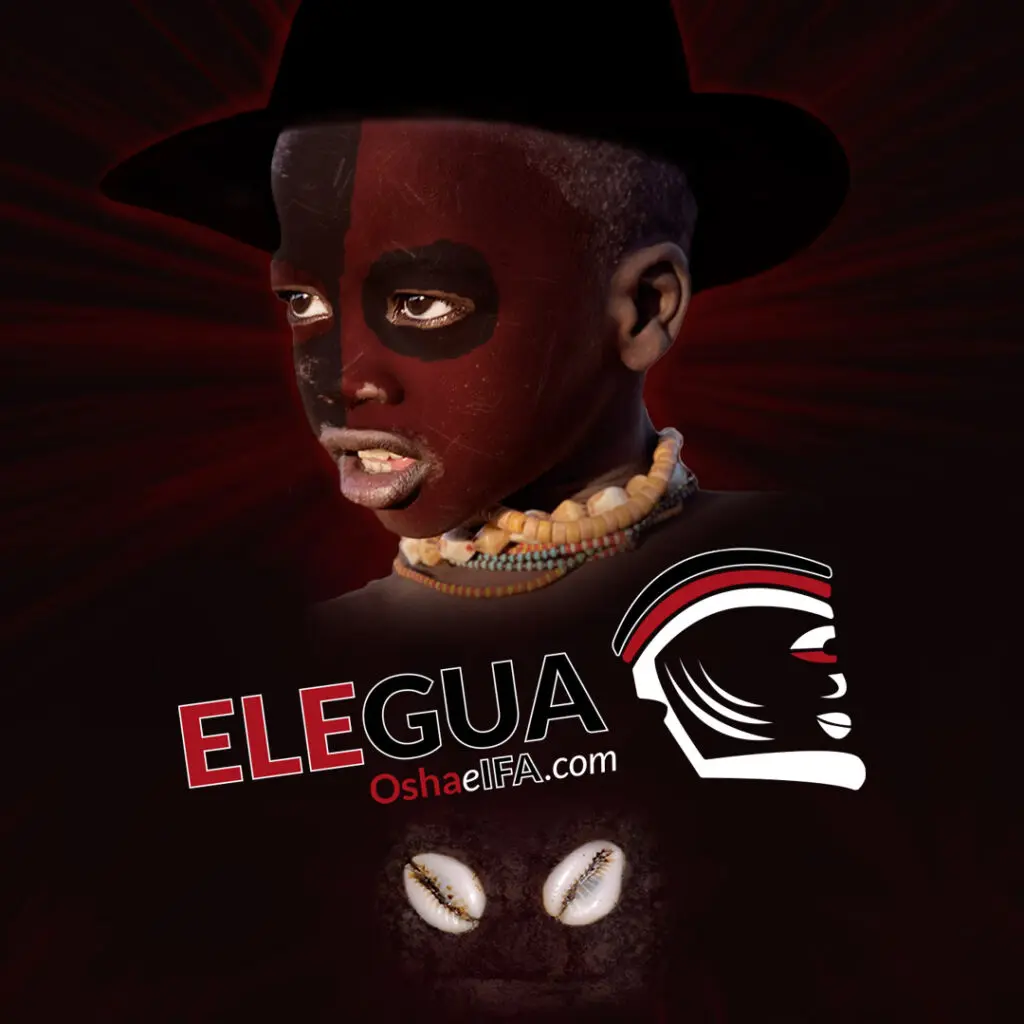
The Ifá teachings on Elegua offer a window into the complex universe of the Orishas and their role in human destiny. Through the Odus, sacred Ifá texts, the various aspects and facets of Elegua are revealed, showing not only its importance in Yoruba cosmology but also its active and determining presence in the daily life of its devotees.
Elegua is known for his connection with the Odu Ogbe Ate, where his arrival to this world and his function as a distributor of destinies and messenger of the gods is narrated. However, Elegua's presence extends across several Odus, each revealing different layers of her character and his influence. For example, in the Odu Ogunda Meji, he is described as accompanying Baba Ogunda Meji and Ogun from heaven to earth. Here, Elegua acts as the guardian of the eboses (sacrifices), ensuring that messages and offerings reach the appropriate deities and thus facilitating problem resolution. This Odu also celebrates Elegua with divine honors, including a crown and a necklace of beads that symbolize his authority and his central role as a messenger between the divine and the earthly.
In another Odu, Ojuani Shogbe, Elegua's most challenging inclinations are explored, highlighting episodes where he seeks to impose his will and exercise his supremacy. These narratives not only illustrate the complexity of Elegua as an Orisha but also teach vital lessons about power, responsibility, and the consequences of our actions in the spiritual and material world.
Studying the Ifá teachings on Elegua allows devotees and scholars to better understand the depth and richness of this deity, as well as its impact on religious practice and everyday life. Elegua, with her duality and multiple facets, emerges as an essential figure that guides, protects and challenges, reminding us of the importance of communication, respect and balance in our relationship with the sacred.
Elegua told Orunmila:
My friend is the one who feeds me and respects me, while my enemies are those who despise me and starve me ...
Patakie: The Story of Elegua

The story of Elegua, a patakí who takes us to the origins of this Orisha, reveals the depths of Yoruba spirituality and its rich symbolic narrative. In an African tribe, a prince named Eleggua is born, whose life and legacy are intertwined with a mystical event: the encounter with a dry coconut that radiated its own light. This meeting at a crossroads, the symbolic place of Elegua, prefigures his role as the guardian of the paths and destiny.
The outcome of this story, with the death of the prince and the subsequent veneration of the coconut, which is later replaced by an eternal stone, illustrates the transition from the ephemeral to the enduring. This change symbolizes Elegua's evolution from an earthly presence to a revered divinity, whose essence is perpetuated through sacred objects that her devotees can honor.
This patakí is not only a story of the origins of Elegua; It is a teaching about impermanence, respect for the sacred, and transformation. “Ikú lobí Osha” – “the dead gave birth to the saint”, this proverb encapsulates the idea that from death arises reverence, and with it, the continuity of spirituality and worship.
This narrative invites followers of Elegua to reflect on the importance of remembering and honoring origins, recognizing that veneration and devotion transcend matter and are rooted in the spirit. The story of Elegua reminds us that, in spiritual practice, the objects and symbols we choose to represent our deities carry within them a history and a power that connects the earthly with the divine, the human with the eternal.
Pataki: The snails of Elegua
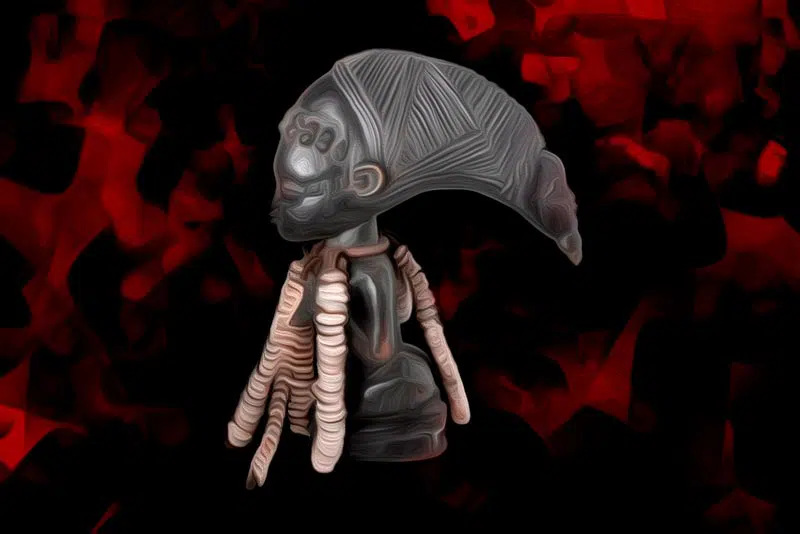
This patakí reveals an intriguing and astute side to Elegua, highlighting his ability to navigate through conflict and secure his unique position within the Yoruba pantheon. The story begins with the death of a king and the mission of three brothers, including Elegua, to return his body to his land. This event triggers a series of events that highlight Elegua's intelligence and cunning, differentiating him not only among his brothers but also in the eyes of deities and mortals.
The plot thickens with the dispute over three additional snails, a symbol of distinction and power among the Orishas. Elegua's solution to this dilemma, by using his wits to appease his brothers and at the same time secure the snails for himself, illustrates his ability to handle complex situations to his advantage. This balancing act between family loyalty and his own interests underscores Elegua's role as mediator and guardian of the paths, capable of finding solutions where others only see conflict.
Furthermore, the story reflects the complexities of divine and human interaction, where Elegua plays a crucial role in influencing the destinies of both the earthly and spiritual realms. His ability to alter the course of events, even in matters as delicate as potency and procreation, speaks to his power and indispensable role within the Yoruba worldview.
Finally, the conclusion of the narrative, where Elegua is both rewarded for his actions and restricted in his abode, reflects the duality of his nature. Although he is celebrated for his cunning and is granted special privileges, he is also reminded of his place and limits are imposed, underscoring the idea that power and influence come with responsibilities and restrictions.
This patakí, loaded with teachings and symbolism, invites us to reflect on cunning, intelligence and the ability to adapt as tools to navigate life. Elegbara, with her ingenuity and ability to navigate challenges, stands as a model of resilience and sagacity, reminding us that the path to fulfillment and divine protection often lies in our ability to adapt and find ingenious solutions to obstacles.
You can read: Elegua is bad?
The Relationship between Elegua and Eshu
The relationship between Elegua and Eshu is a fascinating and complex aspect within the religious traditions of Santería and the Yoruba religion. Elegua, in Nigeria, is known as Eşu, an entity whose importance is such that its absence in any ritual practice could hinder positive energy channels and activate negative paths for human beings. This fact highlights the duality of his nature, where Eshu is not seen as a demonic deity but as an essential balancer of this plane.
In Santería, or Osha Rule, the relationship between Eshu and Elegua is presented as one of duality and balance. Elegua is perceived as more docile and gentle, acting as a guardian and guide for humans. On the other hand, Eshu, with his unquenched energy, acts freely and at great speed, influencing all aspects of the world. This interaction between Eshu and Elegua illustrates the coexistence of the positive and the negative, demonstrating that both aspects are necessary to maintain the balance of the universe.
The physical placement of its foundations, with Elegua guarding the entrances to homes and Eshu located in external areas, symbolizes the border between two energies that, despite their contrasts, complement each other to establish a perfect balance. This arrangement reflects the deep understanding of the energies that govern the world and how they interact with the daily lives of believers, underscoring the importance of both Orishas in religious and spiritual practice.
Are Eleggua and Eshu the same Orisha?
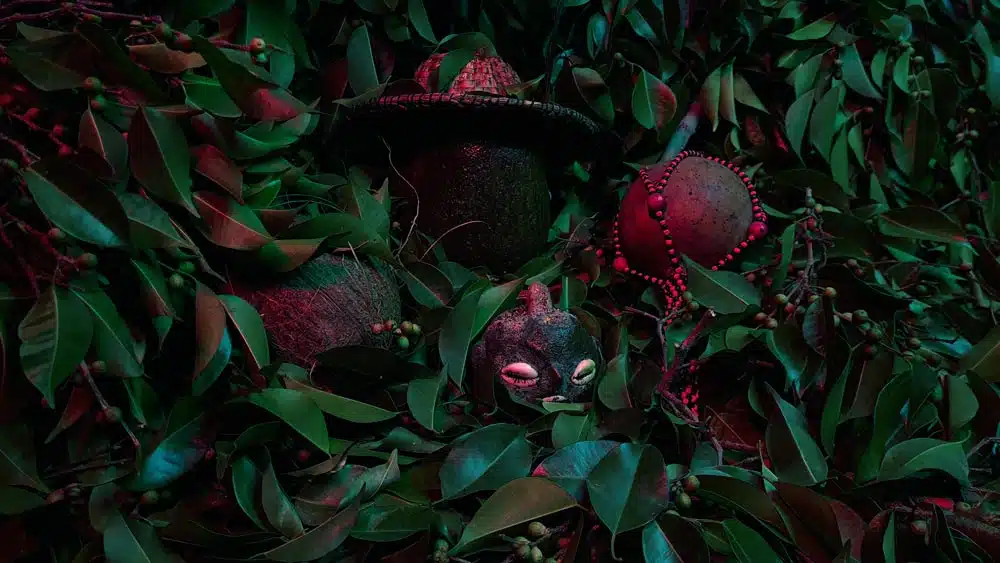
The question of whether Eleggua and Eshu are the same Orisha has fueled deep debates and analysis within the religious community that practices Santería and follows the Yoruba religion. This investigation not only reveals the richness and complexity of these spiritual traditions but also the diversity of interpretations that can arise around divine figures as central as Eleggua and Eshu.
Leonel Gámez Oshe Niwo, in his work “Defending Our Traditions II”, argues that the delivery of Elegbara by an Olorisha is, in fact, the delivery of an Echu, emphasizing that Elegbara is one of the many names of Echu. This statement suggests a fusion between Eleggua and Eshu, seeing them not as separate entities but as manifestations of the same divinity, whose veneration and understanding can vary depending on the cultural and regional perspective.
The distinction between Eleggua and Eshu is further deepened when considering the "paths" or avatars of Eshu, which are defined through the Odu of Ifá and reflect the diversity of roles, attributes and teachings that this Orisha possesses. These paths, influenced by the specific traditions of different regions of the Yoruba kingdom, show that Eshu can be understood and venerated in multiple ways, reflecting the richness of religious practice and spiritual interpretation.
In Cuba, the practice of Santería has led to a simplification in the way of handling the foundation of this Orisha, mainly delivering Eshu Elegbara without the complexity of additional burdens that could be recognized in Nigeria. This adaptation reflects both a cultural preservation strategy and a response to the specific needs and contexts of the African diaspora in America.
Adrian de Sousa's quote, taken from his book "Eshu-Elegua: Dynamic Balance of Existence", illustrates the ambiguity and complexity in the understanding of Eleggua, highlighting how cultural and linguistic differences can influence the perception of this deity . His experience speaking with an Ifá priest in Nigeria highlights how the names and characteristics attributed to the Orishas can vary significantly, even within the same religious tradition.
In conclusion, the relationship between Eleggua and Eshu encapsulates the dynamism and depth of the Yoruba religion and Santería, inviting a continued exploration of its teachings, practices and manifestations. This discussion not only enriches spiritual understanding but also fosters a respect for the diversity and adaptability of these traditions over time and across different cultures.
Elegua in the Catholic Religion and Other Traditions
Elegua, known for its dynamism and constant movement, is associated in religious syncretism with figures such as Ánima Sola, Santo Niño de Atocha, San Francisco, and San Roque, reflecting its diversity of representations. However, his most significant connection within Catholicism is with Saint Anthony, whose cult shares similarities with the adaptable and protective nature of this Orisha. This parallelism is reinforced by the tradition of praying three times to Saint Anthony, echoing the representative number of Elegua.
The cult of Saint Anthony expanded widely thanks to the Franciscan order, helped by monarchical support. This expansion symbolizes the omnipresence of Elegua, present in all roads and places. Furthermore, the connection of San Antonio with military affairs and victory in conflicts underlines the warrior aspect of Elegua.
With syncretism, Elegua acquired new attributes in the New World, such as the Pilgrim's Staff (Garabato), the Pilgrim's Bag (Güiro), and the Pilgrim's Hat (Yarey's hat), elements that connect it with the identity of the Cuban peasant and his role as guardian of the roads.
Beyond Catholicism, Elegua also finds resonance in other religious practices, such as Brazilian Candomblé, where he is known as Eshu, and in Palo Monte Mayombe, where he is identified with Lucero Mundo. These manifestations underline his essential role as a messenger and mediator, maintaining the fundamental essence of him across different cultures and traditions.
The study of Elegua's syncretism illustrates the rich amalgamation of cultural influences that make up its cult, from its African roots to its integration into the American context, evidencing the complexity and deep resonance of this deity in the cultural mix of America.
Practices and Rituals with Elegua
Elegua, known for its power to open paths and facilitate communication between humans and gods, is central to a variety of practices and rituals within Santería. These rituals, known as “obras” and “ebbos,” are performed for specific purposes, from solving problems to attracting love to mastering difficult situations. Through these practices, devotees seek the intervention of this deity to improve their lives and achieve their goals. The following works and ebbos with Elegua illustrate the diversity of approaches that can be taken to invoke his power and benevolence.
Works and Ebbo with Elegua for Various Purposes
Work to solve problems:
This work involves the preparation of three small cooked fish, spread with palm oil on one side and cocoa butter on the other, accompanied by balls made with honey, fish, and smoked jutía powder. After presenting them to Eleggua, they are taken to the mountain or to different corners, depending on the Orisha's indication.
Work to open the roads:
Three buns of corn flour mixed with honey, brandy, fish and smoked jutía powder, and corojo butter are prepared, wrapped in banana leaves. After cooking and cooling, they are used to cleanse the interested person in front of Elegbara, requesting the opening of roads. Subsequently, they are placed at the foot of Elegua for three days before being taken to the mountain.
Work for love:
A mixture of bush powder and lodestone is kept at the foot of Eshu for three days. This powder is then used to touch the desired person, invoking the dominating power of Eleggua to attract their love.
Ebbo to dominate and love tie:
It involves the use of a chicken for Elegua, from which the tongue is extracted while the name of the person to be dominated is pronounced, and two pigeons for Obatalá, following a similar procedure. With the collected elements, an inshe is prepared that is placed inside a piece of yam, which is then placed at the feet of the Orisha with a specific request for the mentioned people to remain united.
These practices reflect the depth and variety of the ways in which Elegua can be invoked for assistance in everyday life. Each of these works and ebbos highlights the intimate connection between devotees and this powerful Orisha, reaffirming his role as an essential mediator in Santería.
To explore the prayers to this Orisha in detail, visit «Prayer to Elegua: Invocation, Open the Paths, Money, Love and more« and Discover specific rituals and works with Eshu-Elegua for money in «3 Works or Ebbo with Elegua for Prosperity«.
The importance of Prayers and Prayers to this Orisha:
Devotion to Elegua, the Orisha of roads and crossroads, is powerfully manifested through songs and prayers that seek his protection, guidance and blessings. These expressions of faith and reverence are fundamental in religious practice, serving as bridges between devotees and divinity. Below is a prayer to this deity that encapsulates the essence of her power and the deep respect due to her.
Elegua, the divine messenger and guardian of the paths, is invoked in this prayer to ensure his protection and assistance. Through these sacred words, he is recognized as the first among the Orishas, the one whose presence and approval are essential for any undertaking or ceremony. The prayer highlights his omnipresence and omniscience, recognizing his ability to influence destinies and facilitate communication between the spiritual and earthly worlds.
The translation of this prayer reveals the depth of the relationship between the devotees and Elegua, emphasizing his role as mediator, protector and spiritual guide. By reciting these words, practitioners seek the favor of this Saint, asking that he free them from conflict, open paths to success and happiness, and grant them the wisdom to navigate life's challenges.
This act of prayer is a reminder of the interdependence between humans and the Orishas, where offerings, respect and sincere communication form the basis of an enriching spiritual relationship. By addressing Elegua with respect and humility, devotees reaffirm their commitment to the principles and values of their faith, always seeking balance and harmony under the guidance of this powerful deity.
Conclusion
Elegua emerges as a pillar within Yoruba cosmology and its expansion through Santería, representing the beginning and the end, the watcher of the crossroads who weaves destiny with a wisdom that balances light and darkness. The figure of him, rich in symbolism and vital in spiritual practice, guides us through the mysteries of life and divine interaction, showing the depth of his influence and the complexity of his being.
The veneration of Elegua, through rituals, offerings and songs, reflects the deep relationship between the faithful and the divine, positioning him as an essential mediator, a guardian who illuminates the darkest paths and opens doors of opportunities to those who pay homage to him with sincerity and faith.
His cult, which transcends continents and cultures, demonstrates his ability to adapt and the universality of his teachings. Elegua, with his vast presence, urges us to value cunning over strength, knowledge over ignorance, and adaptability in the face of life's constant changes.
At the heart of his message, Elegua reminds us that every decision is a crossroads. He is there to accompany us, challenge us and protect us. His devotion assures us that, although destiny is an enigma and life is full of crosses, we do not travel alone. With Elegbara by our side, every step has a purpose, every choice has meaning, and every ending is a beginning. In his wisdom and love, he teaches us to courageously embrace life, to meet our shadows with light, and to walk our paths with confidence that, under his protection, all things are possible.
